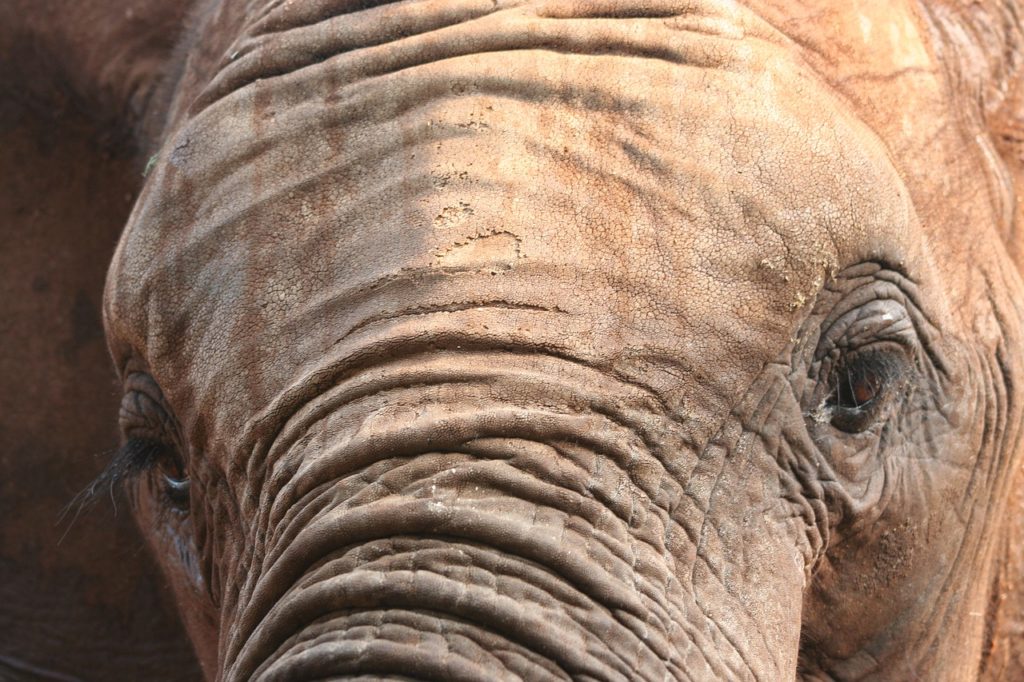NEW YORK and LONDON – January 12, 2018 – In a letter to Jeff Zucker, President and Michael Bass, Executive VP of Programming at Cable News Network (CNN), Born Free Foundation and a coalition of 28 conservation leaders, including member organizations of the Species Survival Network, representing millions of concerned citizens worldwide, are urging the company to reconsider airing Trophy, described by the coalition as a “shockumentary,” this Sunday, January 14, because the film fails to offer “the network’s millions of viewers an opportunity to see and hear the counterviews to trophy hunting presented with the same degree of prominence and exposure.”
Will Travers OBE, President of Born Free, stated “Among the concerns cited in our letter,the coalition contends that the filmmakers: ‘deliver a film that is almost devoid of facts;’ that ‘articulates assumptions that go unchallenged;’ and ‘fails to offer the viewer the opportunity to make any kind of informed decision.’ He goes on to say that instead of exploring the topics of trophy hunting and conservation in a thorough, balanced and objective way, the film does a disservice to the subject by presenting a perspective that is, simply put, “inaccurate, misleading and self-serving.”
According to the letter, the film’s many assertions are presented as truth or a statement of fact when, in reality, they are “controversial, contestable and confusing.” A few examples of inaccuracies or misinformation in the film noted in the letter include:
- Hunting clubs and organizations like Safari Club International (SCI) like to argue that the money spent by hunters engaged in legal, recreational trophy hunting make important contributions to African economies and also fund conservation efforts. However, the film presents no analysis or assessment of this assertion. Rather, independent research by analysts such as Economists at Large, in fact conclude,just 3% of the revenue generated by trophy hunting ends up supporting local communities (The $200 Million Question, How much does trophy hunting really contribute to African communities, February 2013http://bit.ly/trophyreport ). Kenya alone generates between roughly 5 to 6 times the total revenue generated by trophy hunting from across all of Africa from its sustainable and non-consumptive approach to wildlife conservation (i.e, eco-tourism).
- One of the most confusing and dangerous assertions in the film is the so-called “conservation recipe” put forward by South African John Hume, a private rhino breeder with a herd of more than 1,500 rhino. Hume’s ill-conceived plan is to breed rhino, cut off their horns and sell them on the world market. The film presents this notion with no risk analysis, no alternative vision, and no understanding of what would happen to the world’s 30,000 remaining rhino, already struggling to survive, if his plan was put into action. Conservation trade experts contend that his “recipe” would create a legal market for rhino horn to be sold to hundreds of millions of potential customers in the Far East and, based on bitter experience with other wildlife products such as ivory and tiger body parts would, without a doubt, establish not only a cover for the illegal trade but create a parallel market into which illegal rhino horn could be laundered, causing a wildlife crime law-enforcement nightmare. This analysis is entirely absent from the film and, therefore, unavailable for the consideration of CNN’s viewers.
- Mr. Hume and the filmmakers seem to ignore or be unaware of the lessons of the past. In 2008, the international community, despite the pleas of Born Free Foundation and other expert non-profits, approved a one-time sale of more than 100 tons of ivory from South Africa and several other countries to Japan and China. Far from satisfying demand, as the architects of this deal had hoped, it fueled a dramatic and deadly explosion in poaching and the illegal ivory trade. From 2009 to 2014, Tanzania, a country that permits trophy hunting of elephants and until that point, an African elephant stronghold, lost an average of 1,000 elephants per month, every month, for five years — 60,000 elephants that should not have been lost. The poaching epidemic continues to this day, with20,000 elephants poached each year, tons of ivory seized and wildlife rangers — the first line of defense for elephants and rhino — being injured or losing their lives on almost a daily basis. In fact, more than 1,000 of these conservation guardians have been murdered in the line of duty in the last 10 years.
The coalition states that these are but a few examples of significant problems with the documentary. They urge CNN executives to consider commissioning a further documentary which provides viewers with the critical counterpoints, analysis and facts which Trophy lacks.
Travers concluded: “The coalition wishes to express its appreciation to CNN for giving primetime coverage to important issues such as trophy hunting. However, specific to Trophy,it warns that viewers will be left with a one-sided, misleading, and inaccurate view of the claimed relationship between trophy hunting and conservation. I am therefore requesting an urgent meeting with Mr. Zucker and Mr. Bass to discuss the matter on behalf of the coalition’s many thousands of members, and the concerned citizens and CNN viewers who no doubt will share the same views.”
END
Notes to Media:
A copy of the letter sent to CNN is available by request.
The Species Survival Network (SSN), founded in 1992, is an international coalition of over 80 non-governmental organizations (NGOs) committed to the promotion, enhancement, and strict enforcement of the Convention on International Trade in Endangered Species of Wild Fauna and Flora (CITES). Through scientific and legal research, education and advocacy, the SSN is working to prevent over-exploitation of animals and plants due to international trade.
Additional organizations who signed on after the letter was delivered:
Carolyn Bocian, PhD; Co-Director, Rainbow Eco-Farm and Training CenterRaabia Hawa; Executive Director, Ulinzi Africa Foundation
Claudio Sillero; Associate Professor of Conservation Biology, University of Oxford
Carolyn Bocian PhD; co-director, Rainbow Eco-Farm and Training Center




